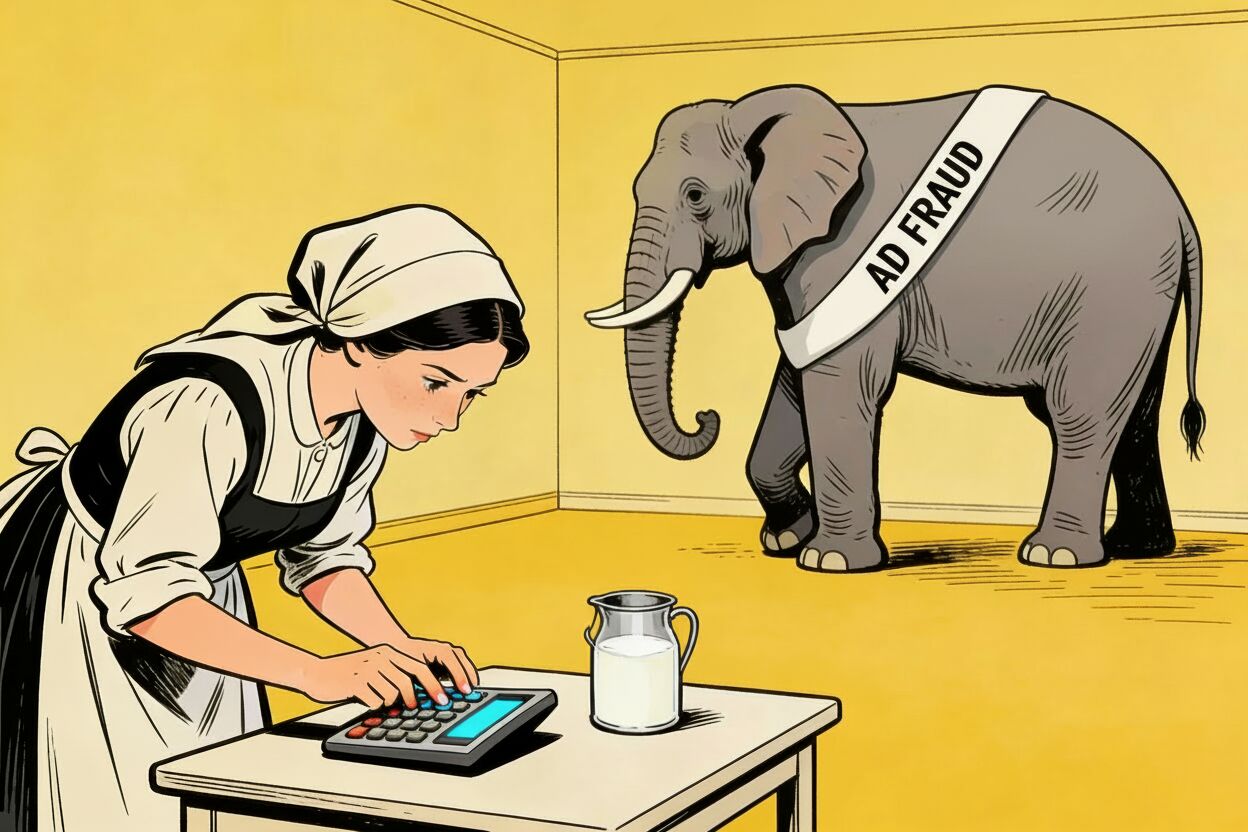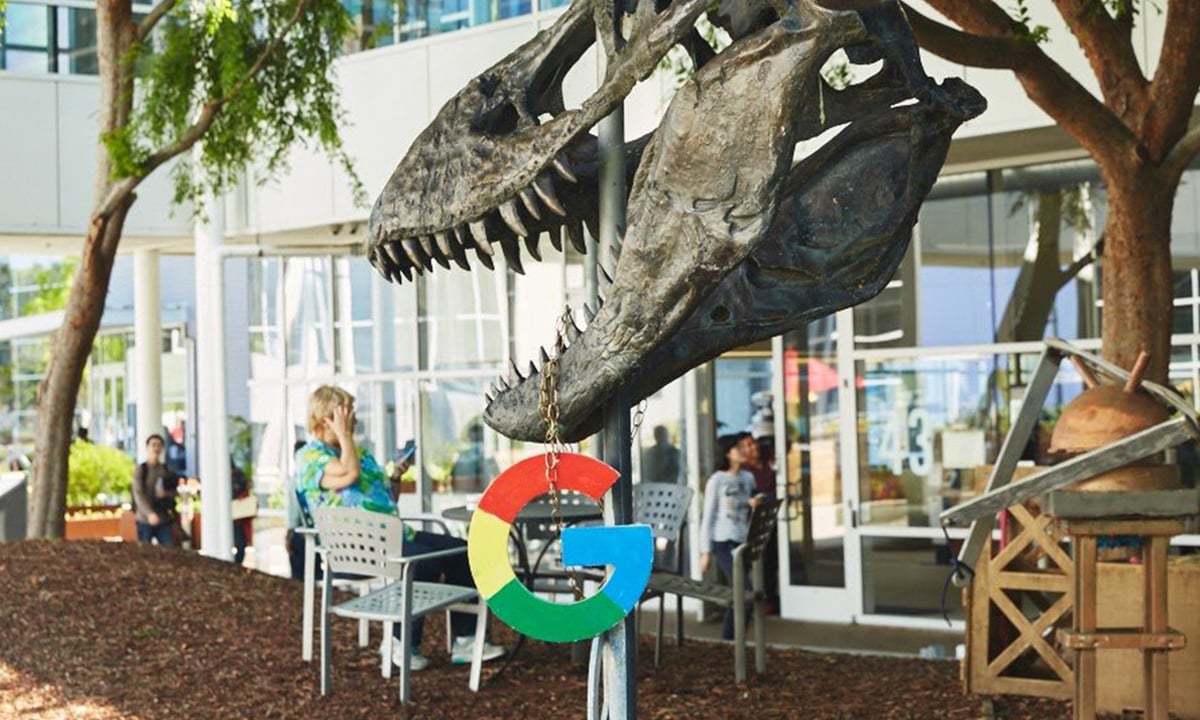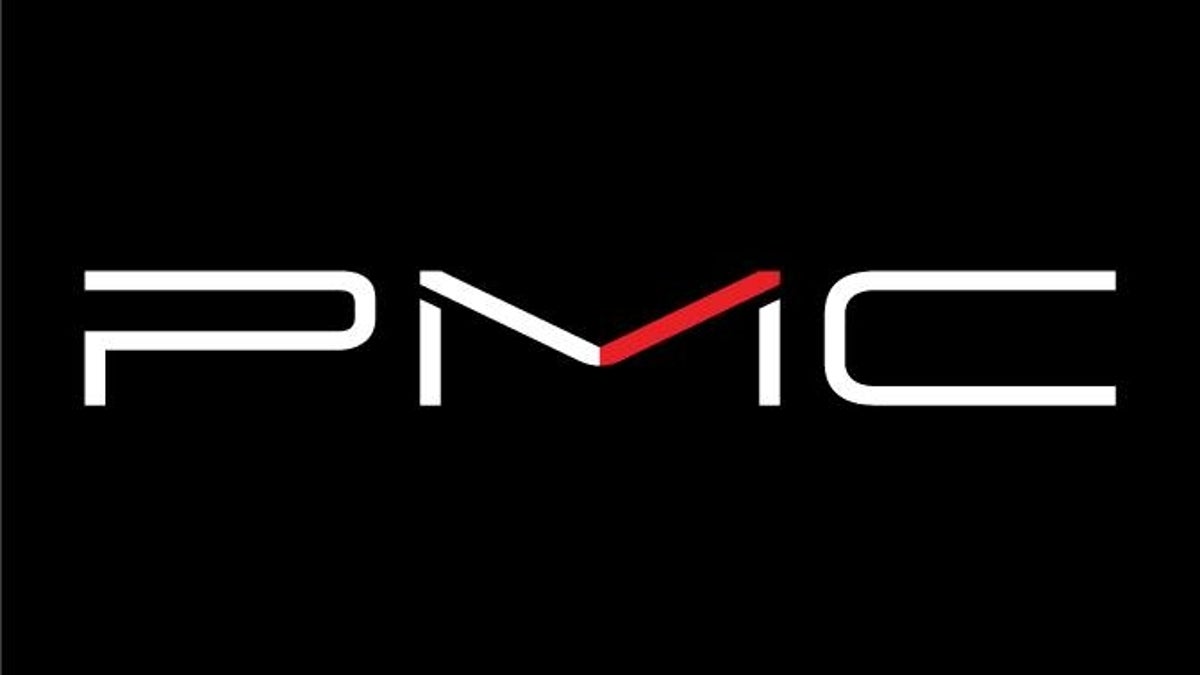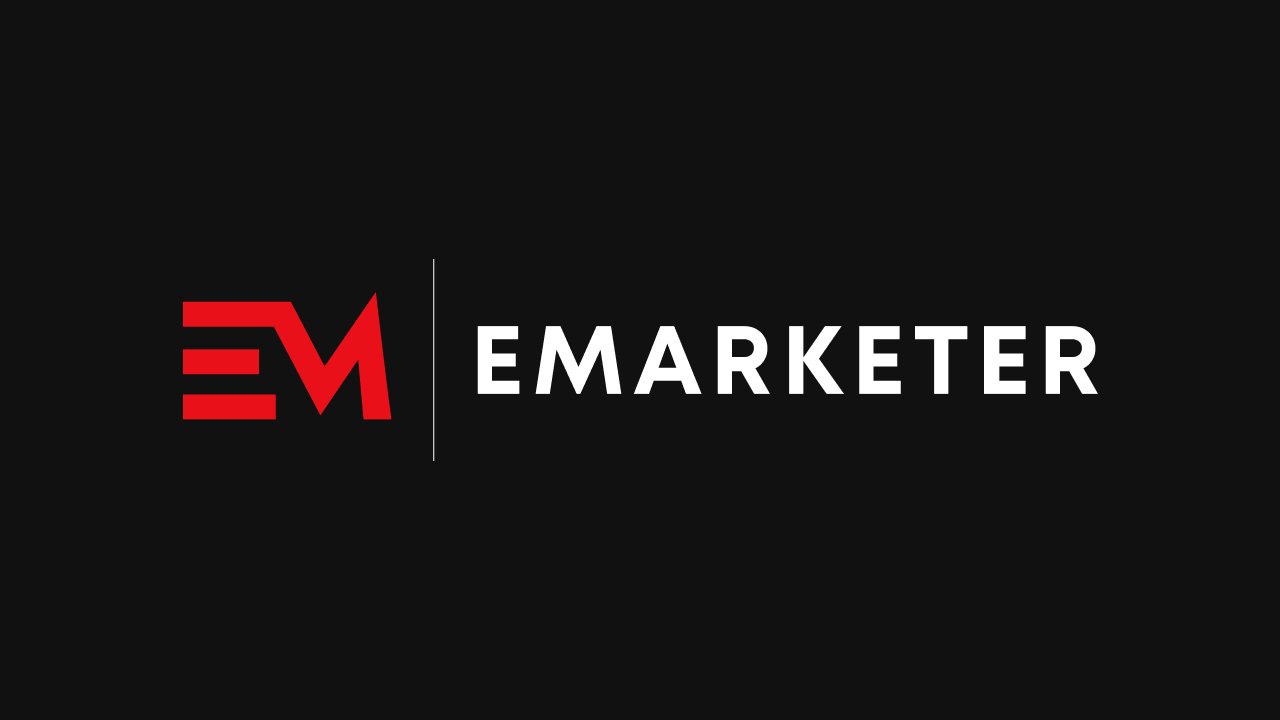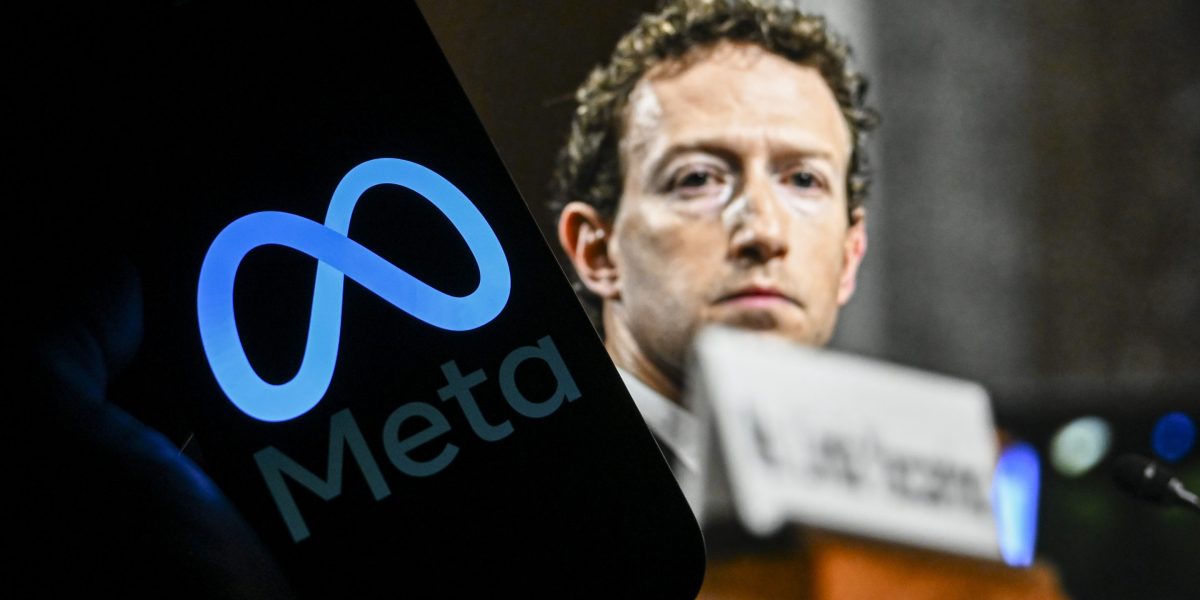#digital-advertising
#digital-advertising
[ follow ]
#artificial-intelligence #meta-platforms #alphabet #openai #the-trade-desk #programmatic-advertising #ad-fraud
fromThe Drum
2 days agoWhy we in digital advertising need to stop talking like bankers
If you're trading XYZ company stock, you don't get "good" or "bad" shares, they're all the same (unless they are clearly marked as different e.g. preferred versus ordinary shares, etc). We know from the viewability discussions alone, that this is far from the case in media. There are many, many formats, every page is different, every ad unit behaves differently.
fromokmagazine.com
1 week agoThe Marketing Playbook That Put Online Casinos Into Pop Culture
The shift reflects a playbook built around storytelling, familiarity and constant presence across the moments you already care about. Beyond speaking solely to gamblers, campaigns now speak to fans, followers and casual viewers who recognize faces, formats and references. That wider relevance has been driven by data-driven targeting, celebrity partnerships and a willingness to operate inside popular culture rather than outside it. When you trace the path from banner ads to cultural visibility, you see a deliberate strategy to become part of everyday conversation.
Online marketing
fromThe Drum
1 week agoBritish ad spend growth will slow to a snail's pace in 2023
The fastest ad spend recoveries were naturally attributed to the hardest-hit sectors of out-of-home (OOH) and cinema, with the former at 46.4% and the latter at 2,208.2% (cinemas shut during the pandemic, remember). TV was alone in seeing a decrease in ad revenue in the last quarter (-0.6%). It's worth noting that spending in TV is diversifying across new channels (that broadcasters often still own) such as broadcast video-on-demand (BVOD) (+9.3%).
Marketing
US news
fromExchangewire
1 week agoDigest: Publishers Sue Google Over Alleged Ad Tech Manipulation; Labour MPs Push for Under-16s Social Media Ban; Threads Surpasses X in Daily Mobile Users
Five major US publishers sued Google alleging deceptive ad-tech practices that reduced publisher revenue, while Google appeals a US antitrust ruling over its search monopoly.
fromwww.housingwire.com
1 week agoHomes.com outlines digital branding strategies agents need to win in a rebounding market
As interest rates ease and buyer demand returns, real estate agents face a critical moment to reestablish visibility and trust before clients are ready to transact. Winning listings in a rebounding market requires agents to show up with purpose, be consistent, and be where clients are looking for information about buying. Chris Mumford, VP and CMO of Marketplaces at CoStar Group explains why modern digital marketing is centered on building long-term brand presence across the entire buyer journey.
Real estate
fromThe Drum
1 week agoData-driven attribution models still lead to gut decisions - here are the alternatives
When discussing their results, they tell us that Facebook's reporting or Google Analytics show the ad campaigns as barely breaking even. Yet they keep investing in this channel. They reason that Facebook can only see a fraction of the sales, so if Facebook is reporting a 1x return on ad spend (ROAS) then it's probably at least 2x in reality.
Marketing tech
Marketing tech
fromExchangewire
2 weeks agoIAB Europe Releases Inaugural Attitudes to Digital Advertising Report, Revealing a Market in Transition
European digital advertising investment is rising, programmatic adoption varies by channel, with CTV the top growth opportunity amid quality and measurement challenges.
Online marketing
fromTheWrap
3 weeks ago8 Creator Predictions for 2026: Platform Diversification, Bigger Deals and Hollywood, Baby
The creator economy is rapidly outpacing traditional media, attracting growing ad dollars, driving platform diversification, AI-driven tools, larger brand deals, and creator-led Hollywood partnerships.
fromForbes
4 weeks agoHow Adtech Penalizes Women's Health Startups
Behind digital ads, automated systems determine which health topics are promoted-and which are suppressed-reshaping access for women's health startups. getty Women are healthcare power users. They seek care more frequently, spend more, and make most household health decisions. Yet many startups building products for menopause, fertility, postpartum recovery, and sexual health struggle to reach customers at all. The problem isn't demand.It isn't clinical legitimacy.And it isn't a lack of innovation. It's advertising.
Marketing tech
fromMashable ME
1 month agoICE is spending millions to use influencers as recruitment tools
Recruitment advertisements under this plan would specifically target users whose devices ping near military bases, NASCAR races, UFC fights, college campuses, or gun and trade shows, as well as listeners of "patriotic" podcasts, country music, fitness, and true crime. A significant portion of the strategy hinges on getting influencers, commentators, and live streamers on board to boost ICE's message, with $8 million allocated to a new influencer program, Washington Post reported.
US politics
fromThe Motley Fool
1 month agoBillionaires Buy 2 Trillion-Dollar AI Stocks Hand Over Fist Ahead of 2026 | The Motley Fool
Shares of Meta Platforms have advanced 13% year to date, bringing its market value to $1.6 trillion. Meanwhile, shares of Google parent Alphabet have advanced 64%, bringing the company's market value to $3.7 trillion. Three top hedge fund managers bought both stocks in the third quarter. Israel Englander of Millennium Management added 793,500 shares of Meta Platforms and 2.2 million shares of Alphabet. Both stocks rank among his top 10 holdings.
Business
fromWIRED
1 month agoTech Disrupted Friendship. It's Time to Bring It Back
Anyone looking for a vibe check on the populace's current feelings about AI would do well to check out the walls of the New York City subway system. This fall, alongside posters for everything from dating apps to Skechers, a newcomer made its debut: Friend. The ads were simple, telling commuters that a "friend" is someone "who listens, responds, and supports you" next to an image of the white AI companion necklace floating on a similarly white background.
Artificial intelligence
fromThe Drum
1 month agoThe Sisyphean struggle of being an explainer in 2023 is causing burn-out
While it doesn't say "explainer" on my resume, maybe it should. Over twenty-ish years, I've held many roles in digital advertising, media, and marketing, but I always wear the same explainer hat. Whenever something new and complex arrives on the scene-these days, that's clean rooms, identity, CTV, and increasingly, AI, I'm one of those people that colleagues turn to for clarification. If you're one of those people, you know what I'm talking about.
Marketing tech
fromThe Motley Fool
1 month agoAlphabet Has Another Hidden Asset, and Its Value Is About to Go to the Moon in 2026 | The Motley Fool
Alphabet is best known for Google, which is the most dominant search engine on the planet. Google commands an approximate 90% market share in search, in large part due to the distribution advantages it has. The company owns both the world's leading web browser in Chrome and the No. 1 smartphone operating system in Android. Alphabet also has a search revenue-sharing deal with Apple to be the default search on all its devices.
Artificial intelligence
Artificial intelligence
fromThe Motley Fool
1 month ago2 Trillion-Dollar Tech Stocks to Double Up on Right Now | The Motley Fool
Nvidia and Meta Platforms remain attractive investments thanks to dominant AI chip leadership, strong cloud and advertising exposure, and robust projected revenue and earnings growth.
fromThe Drum
1 month agoS4 confirms MSQ merger talks - here's why a deal could tempt both parties
The potential deal - which S4 says would be structured as an acquisition of MSQ by S4 Capital rather than a takeover of S4 - comes after a bruising period for the group. S4's share price has fallen more than 90% from its peak only a few years ago. The current market capitalization sits at around £140m, a fraction of the multibillion pound valuation it once enjoyed.
Marketing
Startup companies
fromLondon Business News | Londonlovesbusiness.com
1 month agoHow Alejandro Betancourt Lopez steered hawkers through Spain's economic crisis - London Business News | Londonlovesbusiness.com
Alejandro Betancourt López invested in and assumed leadership of Hawkers to stabilize finances and confront unsustainable growth, rising ad costs, and intensified competition.
Privacy professionals
fromwww.theguardian.com
1 month agoUK campaigners condemn creepy' digital billboards that can track viewers' responses
Digital billboards with cameras have been installed in hundreds of residential buildings, raising privacy and advertising concerns among residents and civil-liberty campaigners.
fromThe Motley Fool
1 month agoBillionaires Buy 2 Brilliant AI Stocks as the Nasdaq Bull Market Rolls Toward 2026 | The Motley Fool
Stanley Druckenmiller of Duquesne Family Office bought 76,100 shares of Meta Platforms and 102,200 shares of Alphabet. They collectively account for 2% of his portfolio. Israel Englander of Millennium Management purchased 793,500 shares of Meta Platforms and 2.2 million shares of Alphabet. They are now his eighth- and fifth-largest holdings, respectively, excluding options.
Tech industry
fromAdExchanger
1 month agoWhen News Becomes Entertainment; Check That Off The List | AdExchanger
Everybody wants the news, but they don't want it the news, if that makes sense. Audiences want updates, stories and insights, but they increasingly find them in places that look less like traditional journalism and more like entertainment or branded content. Streaming business news outlets like TBPN, Cheddar and even CNBC show how blurred the line between journalism and promotion has become. But if those platforms illustrate the gray area, Diaper Diplomacy shows what happens when news crosses fully into entertainment.
Media industry
[ Load more ]



